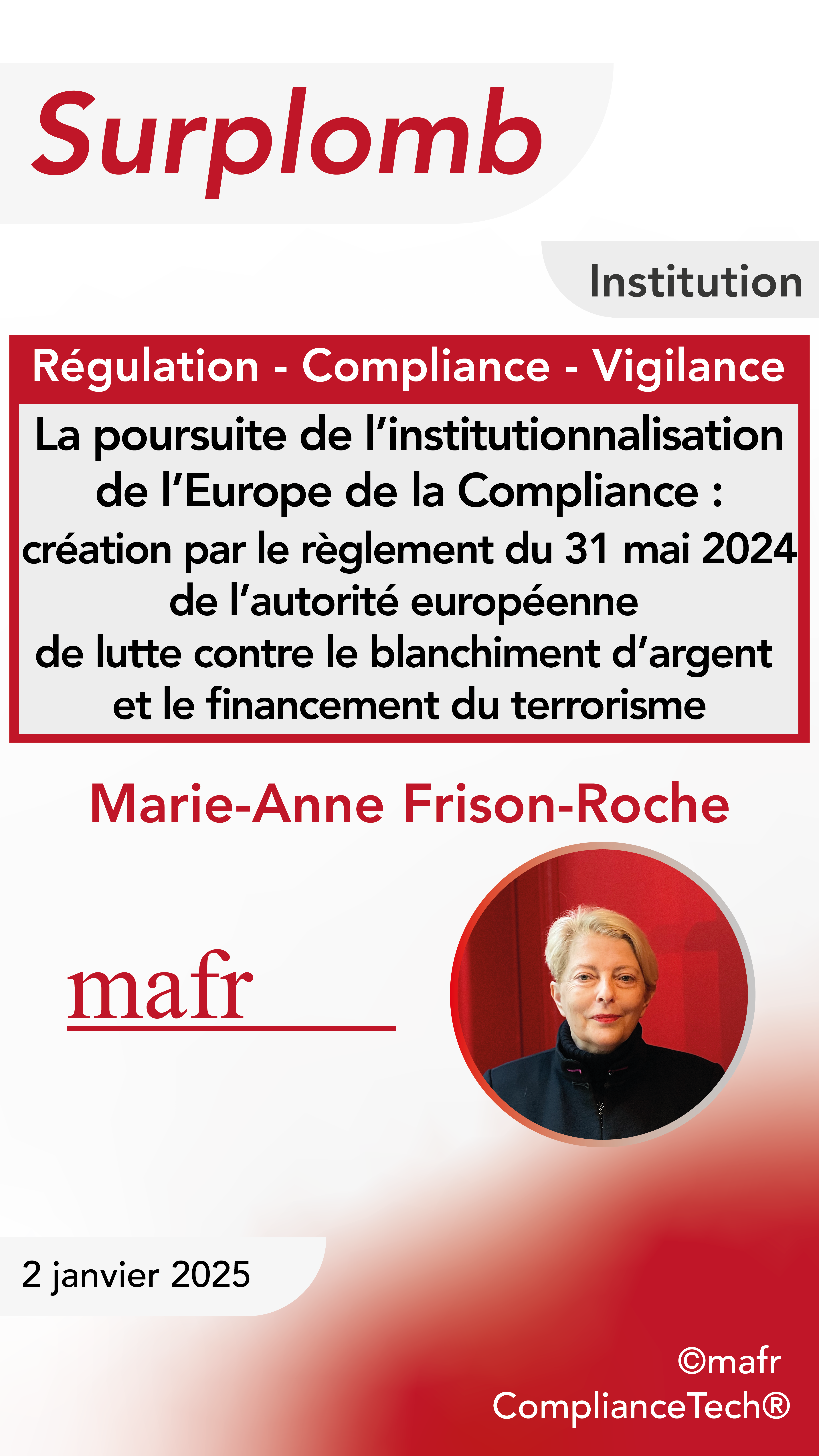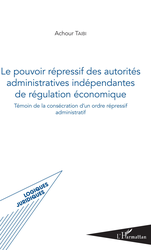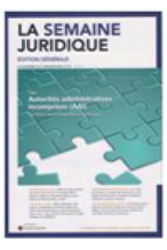Thesaurus : Doctrine

Jan. 2, 2025
MAFR TV : MAFR TV - Overhang

🌐suivre Marie-Anne Frison-Roche sur LinkedIn
🌐s'abonner à la Newsletter MAFR. Regulation, Compliance, Law
🌐s'abonner à la Newsletter Surplomb, par MAFR
____
► Référence complète : M.-A. Frison-Roche, "La poursuite de l’institutionnalisation de l’Europe de la Compliance : création par le règlement du 31 mai 2024 de l’Autorité européenne de lutte contre le blanchiment d’argent et le financement du terrorisme (AMLA)", in série de vidéos Surplomb, 2 janvier 2025
____
🌐visionner sur LinkedIn cette vidéo de la série Surplomb
____
____
🎬visionner ci-dessous cette vidéo de la série Surplomb⤵️
____
Surplomb, par mafr
la série de vidéos dédiée à la Régulation, la Compliance et la Vigilance


March 15, 2023
Conferences

► Référence complète : M.-A. Frison-Roche, "Les Buts Monumentaux de la Compliance soutenus par les autorités publiques", in Revue Droit pénal de l'entreprise, La soirée de la Revue de Droit pénal de l'entreprise, Bruxelles, 15 mars 2023.
________

April 24, 2020
Publications

Its subject is the confrontation between the current health crisis situation and the Compliance Law.
Summary. After defining Compliance Law, distinguishing the procedural and poor definition and the substantial and rich definition, the starting point is to admit the aporia: the type of health crisis caused by Covid-19 will be renewed and it is imperative to prevent it, even to manage it, then to organize the crisis exit. Public Authorities are legitimate to do so, but because this type of crisis being global and the State being consubstantially linked to borders, States are hardly powerful. Their traditional International Law shows their limits in this current crisis and one cannot hope that this configulration will improve radically.
In contrast, some companies and markets, notably the financial markets, are global. But the markets are not legitimate to carry out such missions and counting on the generosity of certain large companies is far too fragile in front of the "monumental goal" that is the prevention of the next health crisis, crisis which must never happen.
How to get out of this aporia?
By Compliance Law, basis of, in a literal and strong sense, the "Law of the Future".
We need to be inspired by the Banking and Financial Compliance Law. Designed in the United States after the 1929 crisis to tend towards the "monumental goal" of the absence of a new devastating crisis in the country and the world, this set of new legal mechanisms gave duty and power of supervision, regulation and compliance to market authorities and central bankers. These are independent of governments but in constant contact with them. Today, they claim to have as first priority the fight against climate change. Now and for the future, they must also be given the responsibility and the powers to prevent a global health disaster, similar to a global ecological disaster, similar to a global financial disaster. This does not require a modification of the texts because their mandate consists in fighting instability. Stability must become a primary legal principle, of which the fight against monetary instability was only a first example. By the new use that central banks must make of it by preventing and managing health crises, Compliance Law will ensure that the future will be not catastrophic.
July 3, 2018
Publications

► Full Reference: Frison-Roche, M.-A., Dessiner les cercles du Droit de la Compliance, in Études en l'honneur de Philippe Neau-Leduc, Le juriste dans la cité, coll. « Les mélanges », LGDJ-Lextenso, 2018, pp. 483-496.
____
🚧this article is based on a Working Paper, with footnotes, technical references and hypertext links.
This Working Paper is freely available :
- in French: Tracer les cercles du Droit de la Compliance.
- in English: Drawing the circles of Compliance Law.
____
► English Summary of this article: Compliance Law has the same teleological functioning as the Economic Law to which it belongs, which consists in placing the normativity of rules, decisions and reasoning in the aims pursued. Once we know what the goals of compliance techniques are, then we know who should be responsible for them, who must be subject to them, who must activate the rules: compliance rules must be activated by those who are in the best position to achieve the outcome in order to achieve the goal sought by the authority which designed the compliance mechanism. The "circles" are thus plotted in a rational and pragmatic way. That, all of it ("useful effect"), but not beyond that. The notion of efficiency does not always imply balancing: on the contrary, it can involve drawing circles which designate those who are "placed" to carry the burden of the rules because they are capable of producing them the desired effects. Within these circles, the rules must apply without restriction and without compromise, but they must not apply beyond these circles.
Drawing such circles requires defining the Law of Compliance itself, since on the one hand the choice of those who must implement the Compliance depends on the aims of the Compliance and on the other hand the definition of the Law of Compliance is itself teleological in nature. This is why, contrary to the assertion that the exercise of definition would be useless in these matters, which would be above all on a case-by-case basis, this effort to define and determine the purposes is, on the contrary, necessary in practice to show which enterprise must bear the obligations of compliance and which must not.
But it is enough to have posed this to reveal the major difficulty of the Compliance, that explains resistances, and even gives the impression that one is confronted with an aporia. If, as a matter of principle, what is expected of the "users" of the Compliance mechanisms must be articulated to the aim that is affected by the authors of the compliance mechanisms to them, we must have a minimum correspondence between the aims of these authors (Legislators and Regulators) and the aims pursued by those who are responsible for implementing them: companies. However, this correspondence does not exist at first sight, because the compliance mechanisms are found to be uniquely based on "monumental goals" which the public authorities have a legitimate concern, whereas companies have for their own interest . The two circles do not match. The internationalization of concern for these aims in companies would therefore be only a mechanism of violence of which enterprises are the object, violence felt as such. (I).
To resolve this violence, it is better to stop confusing the State and enterprises, whose goals are not the same, and draw the circle of subjects of law "eligible" for Compliance. It is highly legitimate to target certain entities, in particular this category of companies, which are the "crucial operators", in a binding way, as it is legitimate to govern companies that have expressed a desire to surpass their own interests. These circles of a different nature can overlap on a concrete operator: for example, if a bank - always a crucial operator that is structural because it is systemic - is also international - a crucial operator because of its activity - decides to worry about others by commitments verified by the authorities to overcome their own interest (social responsibility), but these different circles are not confused. In any case, companies may belong to only one circle, or even belong to none. In the latter case, they must therefore remain beyond the reach of the pressure and cost of Compliance Law, in particular because they are not objectively required to realize the "monumental goals" aimed at effectiveness and do not want it: in a liberal system, it is for the public authorities to aim at the general interest, the ordinary people indirectly participating in it by paying the tax. (II).
It is by making these "Compliance Circles" of eligible subjects of this specific Law to implement the heavy but justified and controlled burden of Compliance with regard to the monumental goals that this new system aims, that then opens a royal way in order to find a uniqueness and to increase the "monumental function" of the Compliance Law by a relation of Trust towards the global general interest, rather than the mechanical application of rules whose meaning is not understood and whose perception is no longer perceived than violence.
____
________
March 23, 2018
Thesaurus : Doctrine

Référence complète : Taibi, A., Le pouvoir répressif des autorités administratives indépendantes de régulation économique. Témoin de la consécration d'un ordre répressif administratif, coll. "Logiques juridiques", L'Harmattan, 2018, 664 p.
L'avènement des autorités administratives indépendantes de régulation économique a grandement contribué à la consécration d'un ordre répressif administratif aux côtés de l'ordre pénal, de même qu'il a contribué au renouvellement de la notion de sanction administrative. Leur pouvoir répressif interpelle à plus d'un titre car il illustre parfaitement l'exorbitance du droit administratif et des pouvoirs de l'administration en matière économique.
L'atout de cet ouvrage est de traiter non seulement du pouvoir répressif des autorités administratives indépendantes en matière de régulation économique, mais également des autres problématiques soulevées par cette nouvelle notion juridique ( indépendance, rapprochement avec le système de l'administration-juge ...).
Lire la quatrième de couverture.

Nov. 15, 2017
Teachings : Participation à des jurys de thèses

Référence : Frison-Roche, M.-A., membre du jury de la thèse de Cédric Paulin ,Vers une politique publique de la sécurité privée ? Réguler la sécurité privée (1983 - 2014), Université Versailles-Saint-Quentin , 15 novembre 2017, 650 pages.
Autres membres du jury : Patrick Hassenteufel, Jacques Maillard, Massimilliano Mulone, Frédéric Ocqueteau ,Yves Surel.
Au terme de la soutenance, le candidat a obtenu le grade de docteur en sciences politiques (les mentions ont été supprimées).
Dec. 6, 2010
Publications

Références complètes : FRISON-ROCHE, Marie-Anne, Autorités Administratives Incomprises (AAI), JCP G 2010, act.1166.
Le Comité d'évaluation et de contrôle des politiques publiques du Parlement a déposé le 29 octobre 2010 un rapport d'information sur les Autorités Administratives Indépendantes (AAI). Ce rapport voudrait "rationaliser" ces Autorités, consolider leur indépendance et veiller au contrôle de leurs pouvoirs.
Mais ce rapport est marqué par des erreurs de perspective à la fois dans la perspective générale des A.A.I. (I) et en conséquence dans les propositions concrètes qui sont faites les concernant (II).
Il traduit en cela l'incompréhension profonde que la France a de ce qui a été souvent qualifié comme un "O.V.N.I", c'est-à-dire ces A.A.I. si contraires à sa tradition.
Lire le résumé de l'article ci-dessous.